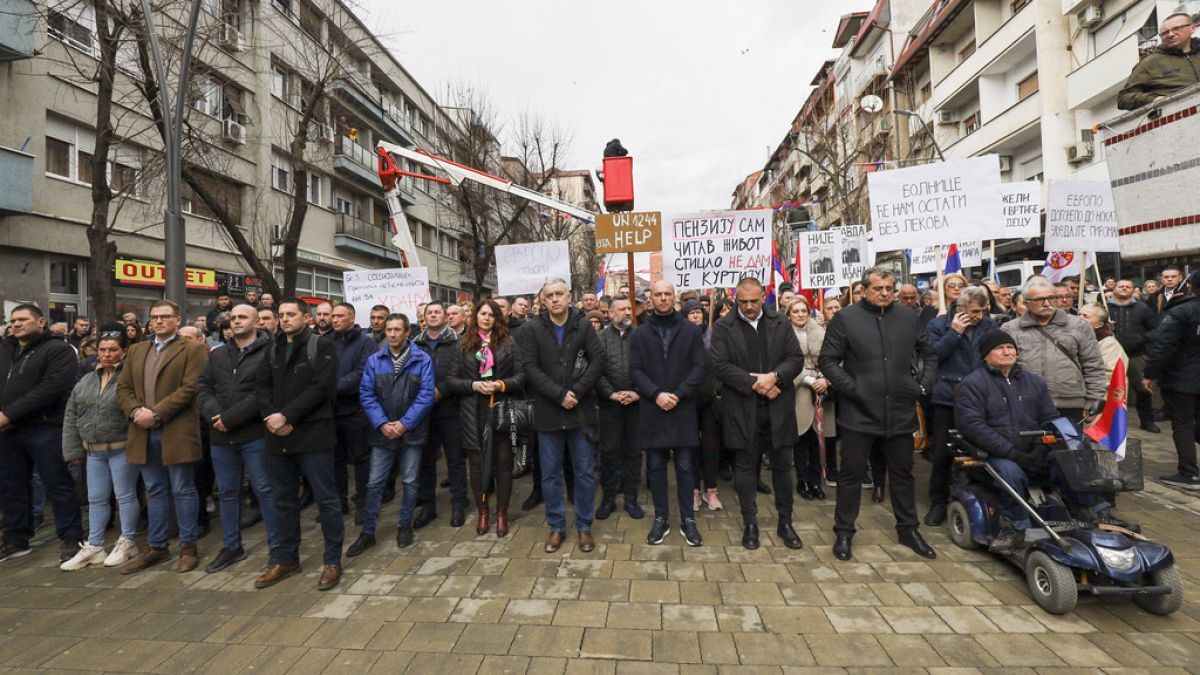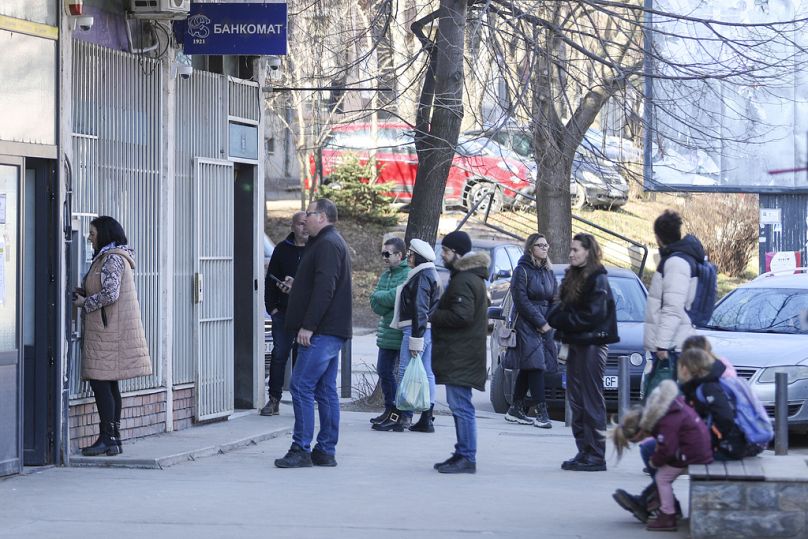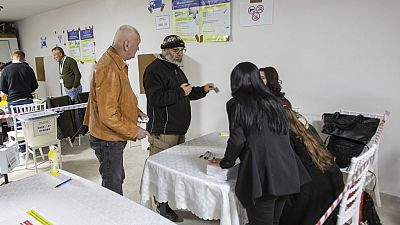In the tumultuous Balkans, even matters of currency are transformed into instruments of political dispute. Which side will come on top in the current standoff between the euro and the Serbian dinar in Kosovo?
As news came out of Pristina in late January on the introduction of the euro as the legal tender throughout Kosovo, many were left puzzled. Clearly, the issue at hand is not exclusively a financial matter. It's part of a broader context.
Following a NATO intervention against Belgrade in 1999 and years of international presence, Kosovo adopted the euro as its official currency unilaterally back in 2002.
However, due to the ongoing dispute with Serbia over its sovereignty, Kosovo was not able to this in the areas with a Serb ethnic majority, the residents of which continued to use the Serbian dinar.
The report of the Kosovo Central bank states that Kosovo first adopted the German mark and afterwards the euro in order to support its fledgling financial sector, transition from a cash economy to a banking one, achieve monetary stability and reduce transaction costs.
These conclusions are corroborated by a report on the same topic made by the International Monetary Fund (IMF) which states that, first and foremost, the use of euro in Kosovo has strengthened the macroeconomic stability of the country.
The two currencies conflict is a larger part of the issue where both the Serbian and Kosovan leaderships having little faith in the current dialogue in Brussels, under the auspices of the EU, meant to finally resolve the standoff between the two. Political clashes more often than not spill over on the economic ties between the two countries.
The annual import of goods to Kosovo from Serbia reaches approximately €490mn, which is not a small sum for Kosovo's modest economy. Goods from Bulgaria, North Macedonia and Albania are providing competition for the Serbian products and increase their share of Kosovo's market yearly. Some Kosovan business experts, such as Agim Shahini, the president of the Kosovo Businesses Alliance, express hope that Kosovo will soon break its dependency on trade with Serbia, but the number still don't add up.
Serbia's economy overshadows Kosovo's almost 7:1, according to the World Bank data and it is one of Kosovo's biggest trading partners, lagging behind Germany, but on a par with neighbouring Albania. The reality is that Kosovo and Serbia both benefit from mutual trade and suffer costs during political standoffs.
In 2024, both sides are trying to win over new positions, as they brace themselves for the year of decisive elections in Europe and the US. The government in Kosovo, led by the charismatic but unrelenting Albin Kurti, has been trying to integrate the Serb-populated north of Kosovo, which consists of four municipalities and an estimated population of around 50,000 people.
In previous years, Kosovo has introduced its own police forces and established local rule, after the Serbian government advised the Serbs living in north Kosovo to boycott the local elections. The Serbian political organisations from the north, closely tied to Belgrade, organised a series of protest rallies, some of which were violent in nature, bringing the situation to a standoff.
This stalemate was broken when the Kosovo security forces cut short an armed paramilitary operation, led by Milan Radoičić, a local politician/controversial businessman from the north of Kosovo a political ally of Serbia’s President Aleksandar Vučić.
The introduction of the euro in all of Kosovo's territory came as the result of this failed operation, which some see as orchestrated from Belgrade in order to split the north of Kosovo from the rest of the country. The authorities in Pristina seized this opportunity, since Serbia had been put on the back foot, and the Central Bank of Kosovo outlawed the use of the dinar as legal tender.
From Kosovo's standpoint, nothing had changed, since its constitution doesn't allow for the use of any other currency except the one authorised by the Central Bank. In practice, however, banning the dinar would put effective control of the flow of finances coming from Serbia and distributed to Serbian municipal, welfare, educational and health institutions still remaining in parts of Kosovo under the control of the government in Kosovo.
As Djordje Djukic, a professor of the Belgrade economics faculty stated in early February: "The political connotation here is that the complete suppression of the dinar means that the Republic of Serbia loses its monetary sovereignty over that part of the territory."
This fact has riled up the Serbian population, which once more protested the measures decided upon in Pristina and it got the support of Brussels and Washington in the process, prompting Pristina to postpone, but not to give up on, the implementation of the decision. In late January, the representatives of the Quint, consisting of the United States and the Big Four of Western Europe (Germany, France, Italy and the UK), issued a joint statement in favour of postponement of Pristina's decision in order to "allow for a sufficient period of transition and for clear and effective public communication".
For this process, one of the most important topics for negotiations between governments in Belgrade and Pristina will be to establish means of direct payment transactions between Kosovo and Serbia.
This would make it easier to meet the needs of economic cooperation and the realisation of four liberties (movement of goods, persons, services and capital) as well as increase the quality of life for all inhabitants of Kosovo.
Financial flow between Serbia and Kosovo would certainly contribute to limiting the space for corruption and organised crime, which has taken root especially in the north, since it has existed in a grey area, legally speaking, for decades.
Kosovo's First Deputy Prime Minister of Kosovo, Besnik Bislimi, also cited monetary flow oversight as one of key goals of the Kosovo government for going forward with their plan to ban the use of the dinar. He said: "Money (from Serbia) continues to cross borders in travel bags and then be distributed by unregistered and unlicensed offices."
The Serbian Central Bank has refused any direct communication with its counterparts in Kosovo, demanding that all the question from its financial jurisdiction be resolved in the ongoing process of intergovernmental negotiations in Brussels. The chief Serbian financial institution called Kosovo's measures "discriminatory, illegal and outrageous". What this means in practice, is that Pristina's euro-dinar decision has been put on hold for the time being.
The way these financial relations between Pristina and Belgrade could be established at first is through intermediaries. This would mean not only establishing neutral clearing accounts through Western capital banks, but also establishing a support fund for Kosovo and Serbia to settle their mutual claims of past debt.
This would require clear political will from the EU governments involved in the negotiations process, in addition to Washington's resolve to become more involved.
Currently, the US seems less inclined to take a more proactive approach, trying to keep up its balancing act between the two governments at odds with each other. As things stand, the currency issue in Kosovo isn't strictly a financial matter, although it needs to be resolved for Kosovo to grow economically. While it is an objective economic necessity for Kosovo, the timing is most certainly political.
At the end of the day, the way and method of introducing the euro to the entirety of Kosovo will depend on the level of involvement, including financial aid, from the interested parties in the West.




